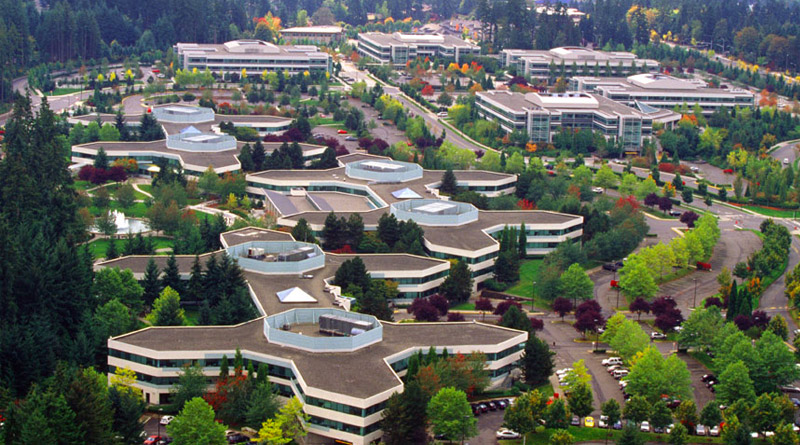REDMOND, Wash. — Green Business Certification Inc. (GBCI) recently announced that the Microsoft Redmond campus has achieved U.S. Zero Waste Business Council’s Gold Level certification. The certification recognizes employee-led efforts to divert at least 90 percent of food, office and construction waste away from landfills through reuse, recycling and composting programs.
The campus is home to 44,000 employees, 125 buildings, 33 cafes, 32 espresso cafes and more than 500 kitchenettes that produced over 189 million pounds of food, packaging and other dining-related items from July to December 2015 and surprisingly 99.5 percent of that waste was diverted from landfills, according to a statement from USGBC.
“Protecting the environment is something that Microsoft and our employees believe in strongly,” said Susain Wagner, the senior director of Microsoft Real Estate and Facilities in a statement to USGBC. “We are grateful for this recognition by GBCI and look forward to building on our work to reduce waste at our Redmond headquarters.”

The Microsoft Main Campus in Redmond, Wash. is home to 125 buildings that have all taken steps to reduce waste.
Photo Credit: MicrosoftAll food prepared in the kitchens at Microsoft’s Redmond campus comes in compostable or recyclable packaging. Microsoft also cooks food from scratch in most cafes to help reduce waste and grows vegetables in hydroponic farms located on campus. Thousands of gallons of frying oil is used on a weekly basis and converted into biodiesel by local recyclers. Condiment packets are also compostable and 100 percent of tableware is made from plant-based materials.
The campus only works with environmentally-friendly suppliers who strive to advance zero-waste goals. For example, several beverage vendors remove plastic packaging and 6-pack rings before delivery and produce deliveries come in containers that are reclaimed and reused.
Besides dining, landscaping on the Redmond campus is another major source of composting. Almost 100 percent of lawn clippings, trimming and leaves are transformed off-site into nutrient-rich mulch that’s returned to the campus and used as fertilizer.
Microsoft has also instituted reuse programs that will extend the life of office supplies, furniture and computer equipment. Surplus binders, power cords, laptops, whiteboards are made available to others around campus via an online store and decommissioned furnishings are donated to nonprofits through a global furniture exchange.
Achieving zero waste certification could not have been possible without the commitment of Microsoft employees. In the future, Microsoft hopes to expand waste diversion programs on the Redmond campus as well as Microsoft facilities around the world.


